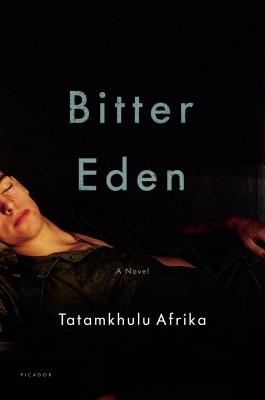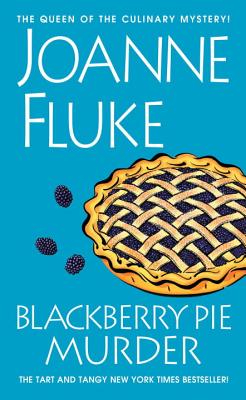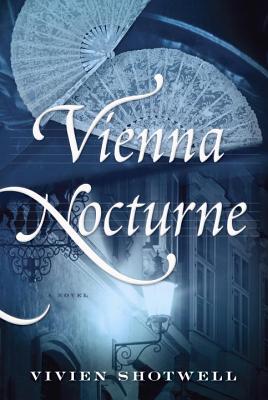A modern classic being introduced to the United States for the first time, Tatamkhulu Afrika's autobiographical novel illuminates the profound and incomparable bonds forged between prisoners of war.
Bitter Eden is based on Tatamkhulu Afrika’s own capture in North Africa and his experiences as a prisoner of war during World War II in Italy and Germany. This frank and beautifully wrought novel deals with three men who must negotiate the emotions that are brought to the surface by the physical closeness of survival in the male-only camps. The complex rituals of camp life and the strange loyalties and deep bonds among the men are heartbreakingly depicted.
Bitter Eden is a tender, bitter, deeply felt book of lives inexorably changed, and of a war whose ending does not bring peace.
It's been a sleepy summer for the folks of Lake Eden, Minnesota. In fact, it's been a whole four months since anyone in the Swensen family has come across a dead body. And that means Hannah Swensen can finally focus on her bakery. . .or can she?
Life is never really quiet for Hannah. After all, her mother's wedding is a little over a month away and guess who Delores put in charge of the planning? Yet just when Hannah believes her biggest challenge will be whether to use buttercream or fondant for the wedding cake, she accidentally hits a stranger with her truck while driving down a country road in a raging thunderstorm. Hannah is wracked with guilt, and things get even worse when she's arrested. . .for murder But an autopsy soon reveals the mystery man, his shirt covered in stains from blackberry pie, would have died even if Hannah hadn't hit him. Now, to clear her name, Hannah will have to follow a trail of pie crumbs to track down the identity of the deceased, find a baker who knows more about murder than how to roll out a perfect pie crust--and get herself to the church on time. . .
Life is never really quiet for Hannah. After all, her mother's wedding is a little over a month away and guess who Delores put in charge of the planning? Yet just when Hannah believes her biggest challenge will be whether to use buttercream or fondant for the wedding cake, she accidentally hits a stranger with her truck while driving down a country road in a raging thunderstorm. Hannah is wracked with guilt, and things get even worse when she's arrested. . .for murder But an autopsy soon reveals the mystery man, his shirt covered in stains from blackberry pie, would have died even if Hannah hadn't hit him. Now, to clear her name, Hannah will have to follow a trail of pie crumbs to track down the identity of the deceased, find a baker who knows more about murder than how to roll out a perfect pie crust--and get herself to the church on time. . .
An immensely talented writer whose work has been described as “incandescent” (Kirkus) and “poetic” (Booklist), Thomas Christopher Greene pens a haunting and deeply affecting portrait of one couple at their best and worst.
Inspired by a personal loss, Greene explores the way that tragedy and time assail one man’s memories of his life and loves. Like his father before him, Arthur Winthrop is the Headmaster of Vermont’s elite Lancaster School. It is the place he feels has given him his life, but is also the site of his undoing as events spiral out of his control. Found wandering naked in Central Park, he begins to tell his story to the police, but his memories collide into one another, and the true nature of things, a narrative of love, of marriage, of family and of a tragedy Arthur does not know how to address emerges.
Luminous and atmospheric, bringing to life the tight-knit enclave of a quintessential New England boarding school, the novel is part mystery, part love story and an exploration of the ties of place and family. Beautifully written and compulsively readable, The Headmaster’s Wife stands as a moving elegy to the power of love as an antidote to grief.
In late-eighteenth-century London, a young girl takes her first singing lessons with a mysterious castrato in exile. Her life is forever changed. Having learned everything he can teach her, Anna leaves behind all the security and familiarity of home and journeys to Naples and Venice to struggle and triumph in Italy’s greatest opera houses. Only sixteen, she finds herself in an intoxicating world of theaters, nobility, and vice, overwhelmed by her newfound freedom and fame. Her first bitter experience of love and heartbreak inevitably follows.
Within a few years, Anna is invited to sing in Vienna, the City of Music, by the emperor himself. There, in a teasing game of theft and play, Anna first meets Mozart, a young virtuoso pianist and striving, prodigiously talented composer. They are matched in intellect and talent, and an immediate and undeniable charge occurs between the two, despite both being married to others.
As her star rises in Vienna and her personal life deteriorates, Anna experiences an ultimate crisis. During this trying time, her only light is Mozart: his energy, his determination for her, and his art. She, in turn, becomes his hope and inspiration, and his joy, as he writes for her some of his most exquisite and enduring arias—music that will live on as his masterworks.
Rich in historical detail and beautifully wrought by Vivien Shotwell, an author who is herself an opera singer, Vienna Nocturne is a dramatic tour de force of a woman’s struggle to find love and fame in an eighteenth-century world that controls and limits her at every turn.
In Pictures at a Revolution, Mark Harris turned the story of the five movies nominated for Best Picture in 1967 into a landmark work of cultural history, a book about the transformation of an art form and the larger social shift it signified. In Five Came Back, he achieves something larger and even more remarkable, giving us the untold story of how Hollywood changed World War II, and how World War II changed Hollywood, through the prism of five film directors caught up in the war: John Ford, William Wyler, John Huston, Frank Capra, and George Stevens.
It was the best of times and the worst of times for Hollywood before the war. The box office was booming, and the studios’ control of talent and distribution was as airtight as could be hoped. But the industry’s relationship with Washington was decidedly uneasy—hearings and investigations into allegations of corruption and racketeering were multiplying, and hanging in the air was the insinuation that the business was too foreign, too Jewish, too “un-American” in its values and causes. Could an industry this powerful in shaping America’s mind-set really be left in the hands of this crew? Following Pearl Harbor, Hollywood had the chance to prove its critics wrong and did so with vigor, turning its talents and its business over to the war effort to an unprecedented extent.
No industry professionals played a bigger role in the war than America’s most legendary directors: Ford, Wyler, Huston, Capra, and Stevens. Between them they were on the scene of almost every major moment of America’s war, and in every branch of service—army, navy, and air force; Atlantic and Pacific; from Midway to North Africa; from Normandy to the fall of Paris and the liberation of the Nazi death camps; to the shaping of the message out of Washington, D.C.
As it did for so many others, World War II divided the lives of these men into before and after, to an extent that has not been adequately understood. In a larger sense—even less well understood—the war divided the history of Hollywood into before and after as well. Harris reckons with that transformation on a human level—through five unforgettable lives—and on the level of the industry and the country as a whole. Like these five men, Hollywood too, and indeed all of America, came back from the war having grown up more than a little.
It was the best of times and the worst of times for Hollywood before the war. The box office was booming, and the studios’ control of talent and distribution was as airtight as could be hoped. But the industry’s relationship with Washington was decidedly uneasy—hearings and investigations into allegations of corruption and racketeering were multiplying, and hanging in the air was the insinuation that the business was too foreign, too Jewish, too “un-American” in its values and causes. Could an industry this powerful in shaping America’s mind-set really be left in the hands of this crew? Following Pearl Harbor, Hollywood had the chance to prove its critics wrong and did so with vigor, turning its talents and its business over to the war effort to an unprecedented extent.
No industry professionals played a bigger role in the war than America’s most legendary directors: Ford, Wyler, Huston, Capra, and Stevens. Between them they were on the scene of almost every major moment of America’s war, and in every branch of service—army, navy, and air force; Atlantic and Pacific; from Midway to North Africa; from Normandy to the fall of Paris and the liberation of the Nazi death camps; to the shaping of the message out of Washington, D.C.
As it did for so many others, World War II divided the lives of these men into before and after, to an extent that has not been adequately understood. In a larger sense—even less well understood—the war divided the history of Hollywood into before and after as well. Harris reckons with that transformation on a human level—through five unforgettable lives—and on the level of the industry and the country as a whole. Like these five men, Hollywood too, and indeed all of America, came back from the war having grown up more than a little.





No comments:
Post a Comment